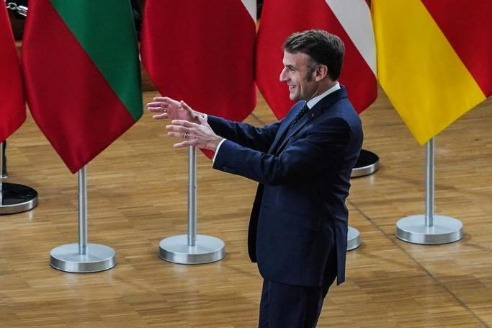Maldives envoy hails strong ties

The Maldives continues to strengthen its tourism and trade relations with China, the country's ambassador has said, calling on more Chinese to visit the island nation.
The Maldives, a tropical destination, attracts a significant number of Chinese tourists. It welcomed more than a quarter of a million Chinese tourists, cementing China as the country's most important source of tourism.
"We've been voted the world's favorite destination for tourists, for four or five years running," Ambassador Fazeel Najeeb told China Daily. "We would like more Chinese to visit us."
He encouraged Chinese travelers to explore a range of options, from luxurious water villas to affordable accommodations. "We have all ranges of tourist facilities," Fazeel said, adding the country is a hot spot for honeymoon couples.
Maldivian, the national airline of the Maldives, in January launched direct flights to three major Chinese cities — Beijing, Chengdu and Shanghai.
"I would like to see more Chinese students go to study tourism and other professional areas," he said. "I think employment in our tourism sector is a launchpad for future career enhancement."
China has offered a lot of scholarships, including fully covered scholarships, to Maldivian students, with around 40-50 currently studying in China and room for 100-200 more, he said. "We, from the Maldivian side, should take advantage," said Fazeel, who took on the role in May 2024.
Tourism and education are vital pillars of collaboration between the two countries, whose diplomatic ties, forged in 1972, have grown over five decades. With relations built on "very solid ground", as Fazeel describes, the Maldives embraced the China-proposed Belt and Road Initiative in 2017 to foster closer links.
"First and foremost, I think it's the infrastructure development support that China is providing us," he said, adding the Maldives has received a lot of financial, and technical support.
The China-Maldives Friendship Bridge, the first cross-sea bridge in the Maldives built by a Chinese company, is a testament to the booming partnership under the BRI.
"This has been a tremendous boost for our development and China continues to provide project support under the BRI," Fazeel said, adding that solar powerhouses are being built to deliver electricity to the islands across the country.
He dismissed the so-called debt trap narrative pushed by some Western media. "We have no concern with regard to this description about the 'debt trap' because we don't believe it," Fazeel said.
"We are a developing country and we need a lot of projects," he said. "We need a lot of foreign aid in the form of concessions, grants and long-term finance.
"Whichever country is providing us with this kind of support in a friendly and cordial relationship, we're here to work with them. China is among the top providers of support like this," Fazeel added.
Trade ties have flourished over recent years, especially with the signing of a bilateral free trade agreement.
The negotiations commenced in 2015 and concluded in 2017. The agreement came into effect in January this year, eliminating ultimately tariffs on over 95 percent of products traded between the two countries.
Maldivian seafood exports, for instance, are poised to benefit from reduced tariffs, while Chinese goods gain easier access.
With trade value in the range of around $750 million to $800 million per year, the volume "can only be increased with the enactment of the free trade agreement", Fazeel said.
The FTA also provides legal protections for investors, fostering opportunities for Chinese and Maldivian businesses to explore joint ventures in both countries, he said.
Yu Han and Zheng Zhuling contributed to this story.
Contact the writers at shaoxinying@chinadaily.com.cn.
































